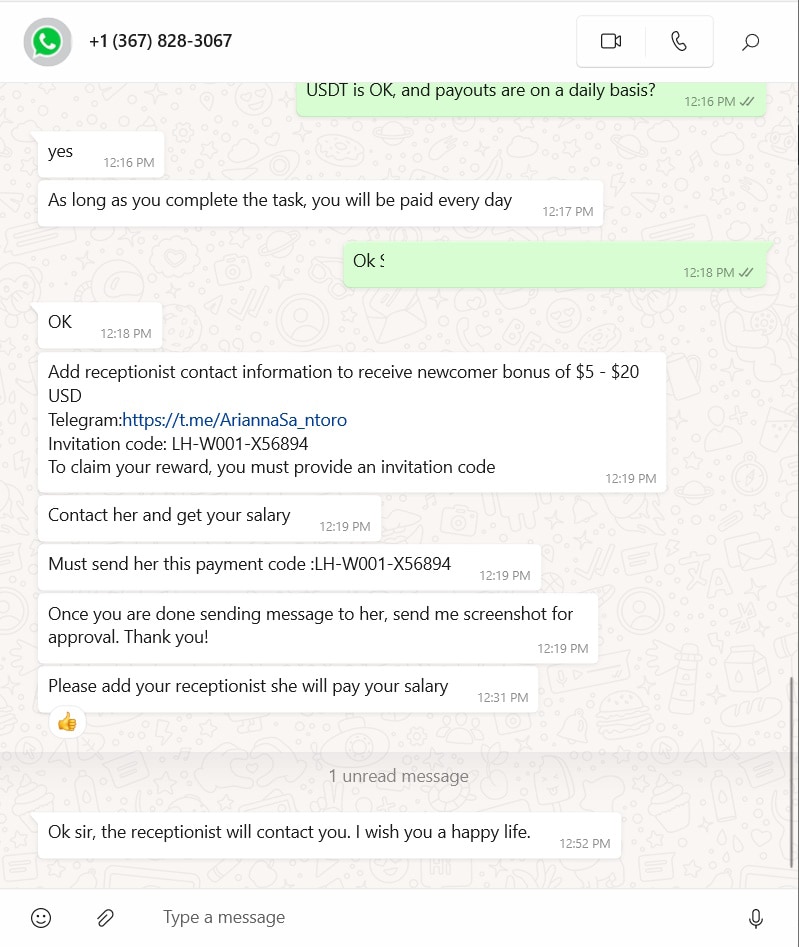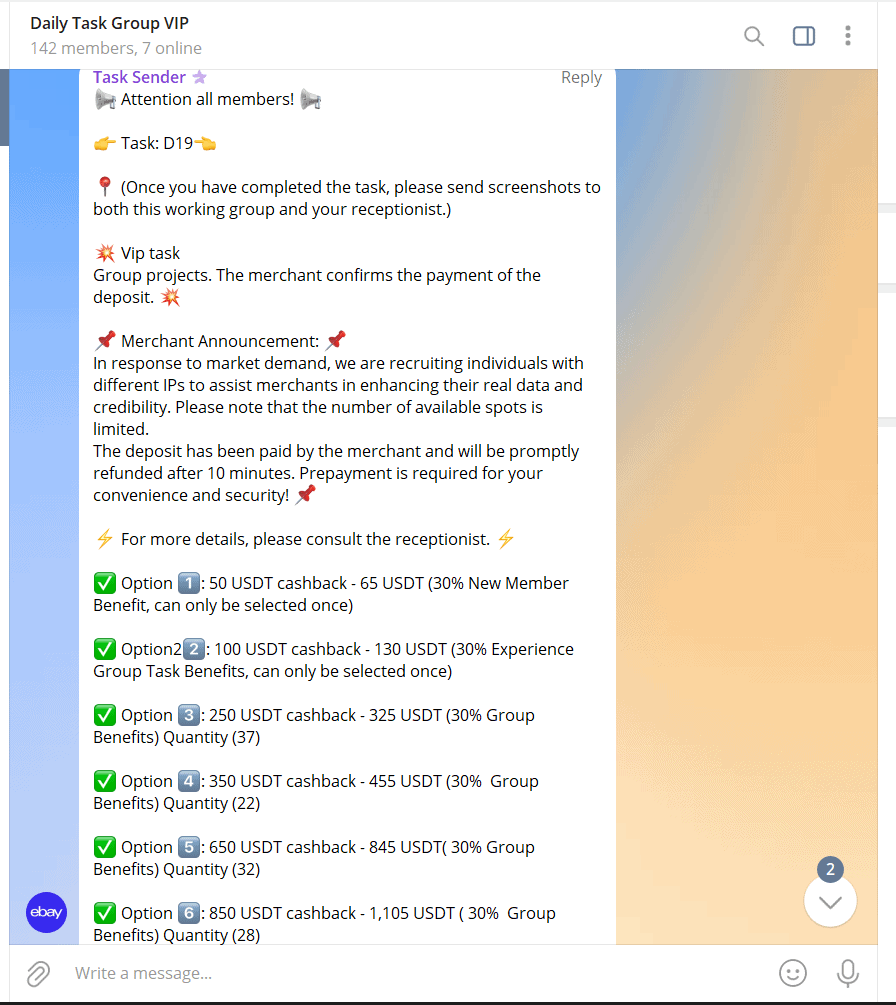A sophisticated and dangerous scam is targeting remote job seekers on WhatsApp, iMessage, and other messaging apps. Scammers offer high-paying, work-from-home jobs, but it’s an elaborate trap designed to steal your cryptocurrency. This guide breaks down exactly how the scam works, the red flags to watch for, and what to do if you’ve been targeted.

How to Spot the WhatsApp Job Scam: Red Flags
| Red Flag | What It Looks Like |
|---|---|
| Unsolicited Contact | You receive a random message from an unknown number about a job you never applied for. |
| Too Good to Be True | The offer promises extremely high pay ($100-$400+ a day) for very simple, vague tasks (“data optimization,” “boosting product exposure”). |
| Payment in Crypto | They insist on paying you in cryptocurrency like USDT (Tether). This is to make transactions anonymous and irreversible. |
| Switching to Telegram | They quickly ask you to move the conversation to Telegram, which offers more anonymity for their criminal operations. |
| Paying to Work | This is the biggest red flag. They ask you to send them your own money for “VIP tasks,” “investments,” or to “unlock” your earnings. Legitimate jobs never require you to pay them. |
How the Scam Unfolds: Step-by-Step
This scam is a multi-stage process designed to build trust before stealing your money.
Step 1: The Initial Contact (The Bait)
It starts with a professional-sounding message on WhatsApp or iMessage from a scammer posing as a recruiter, often using a female name like “Angel” or “Amanda.”
“Nice to meet you, hope you are well. I’m from Skyword | a US-based content marketing company, and my name is Angel. The reason of the text today is, actually we are offering a Freelancing work from home which can give you from $100 to $400 a day.”
The “job” is described as simple tasks like adding items to an eBay cart or subscribing to YouTube channels to “increase exposure.”

Step 2: Moving to Telegram (The Isolation)
Once you show interest, they will insist you move to Telegram to join a “work group.” This is where the main part of the scam takes place. You’ll be added to a group with many other “workers” (mostly fake accounts controlled by the scammers) to create a sense of legitimacy.

Step 3: The “Easy Tasks” and Small Payouts (Building Trust)
In the Telegram group, you’ll be given a series of simple tasks. After completing a few, you’ll be instructed to create a crypto wallet and register on a fake investment platform. They will then send you a small payment (e.g., 10-20 USDT) to “prove” the job is real. This is a trick to gain your trust.

Step 4: The “VIP / Prepaid Task” (The Trap)
After building your confidence, they introduce “prepaid,” “combo,” or “VIP” tasks. To participate, you must send your own cryptocurrency to their wallet with the promise of receiving a large commission (e.g., “invest 100 USDT and get 130 USDT back in 10 minutes”).

They might even pay out the first small VIP task to convince you it’s safe. However, the required investment amounts will quickly escalate.
Step 5: The Final Steal
Once you invest a significant amount of money, a “problem” will occur. They might claim you made a mistake and need to invest even more to “unlock” your funds, or they will simply block you, delete the group, and disappear with your money. The fake investment websites they use (like usdzll.top or Kryll.life) are shut down and replaced frequently.
What to Do If You’re Targeted or Scammed
- If you receive a suspicious message: Do not reply. Block the number and report it as spam on WhatsApp or your messaging app.
- If you’ve started the “job” but haven’t sent money: Stop all communication immediately. Block all contacts, leave any Telegram groups, and do not register on any websites they send you.
- If you have sent money:
- Contact your bank or crypto exchange immediately to report the fraud and see if any transactions can be reversed (this is very unlikely with crypto).
- File a report with your local police and national cybercrime agencies (e.g., the FBI’s IC3 in the US).
- Be aware of “recovery scams.” Scammers may contact you again pretending to be able to recover your lost funds for a fee. This is just another scam.
Frequently Asked Questions (FAQ)
Who is behind these scams?
These are typically sophisticated, organized crime rings operating globally. They use anonymizing tools, cryptocurrency, and fake identities to make tracking them nearly impossible.
Why do they use cryptocurrency like USDT?
Cryptocurrency transactions are largely anonymous and, more importantly, irreversible. Once you send crypto, it is gone forever, making it the perfect tool for criminals.
Can I get my money back?
Unfortunately, it is extremely rare for victims to recover money lost in a crypto scam. The best defense is prevention.
Conclusion: Protect Yourself
The WhatsApp Job Scam preys on people’s need for flexible, remote work. Always be skeptical of unsolicited job offers that seem too good to be true. Remember the golden rule: A real job will pay you, not the other way around. Stay vigilant, trust your instincts, and share this information to protect others.






